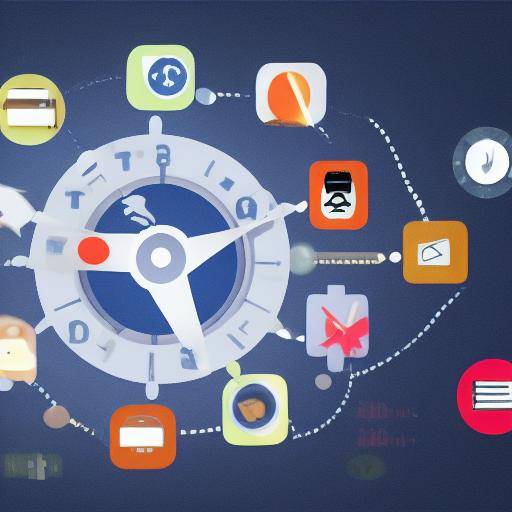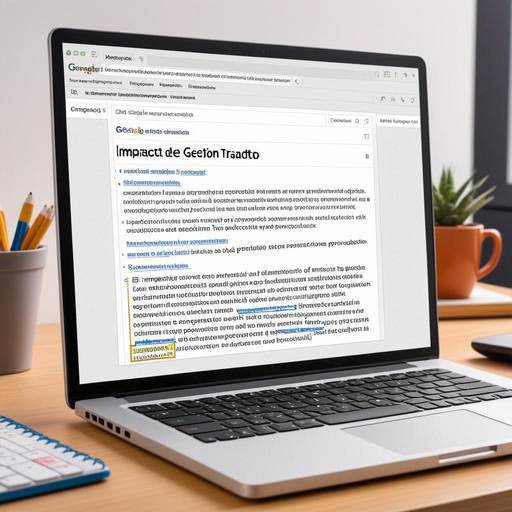
In today's society, time management has become a crucial factor not only for productivity, but also for emotional balance. The dizzying rhythm of modern life can generate stress, anxiety, and emotional imbalance if time is not properly administered. In this article, we will explore in depth how time management can impact emotional balance and productivity, as well as provide practical advice and expert views on this topic.
Introduction
Time management is a fundamental aspect of people's lives, both at the personal and professional levels. Often, lack of organization and planning can generate stress, exhaustion and negatively affect emotional well-being. In this sense, understanding how time management influences our emotional balance is essential to improving our quality of life and achieving a state of integral well-being.
History and Background
Time management has been a topic of interest throughout history, although its approach has evolved significantly. In ancient times, civilizations such as Egyptians and Romans already used methods to organize time, especially in activities related to agriculture and social organization. Over time, time management has become an essential aspect of modern life, with the growing presence of technology and the need to reconcile different responsibilities.
During the Industrial Revolution, time management gained even greater relevance, as efficiency in production processes became a determining factor for the success of companies. Since then, multiple theories, methodologies and tools have been developed to optimize the use of time, both individually and organizationally. Today, time management has become a fundamental pillar of productivity and emotional balance.
Analysis in Deep
Time management not only refers to task planning and activities, but also to the ability to prioritize, delegate and optimize the use of available resources. In this sense, effective time management can significantly contribute to emotional balance by reducing stress and feeling overwhelmed. In addition, it provides time for activities that generate well-being and personal satisfaction, promoting a greater balance between working and personal life.
In a working context, time management is critical to increasing productivity and efficiency. When effectively planning tasks, the likelihood of experiencing stress situations is reduced due to adjusted time frames or accumulated work. In addition, proper time management provides the possibility of developing emotional self-regulation skills, which contributes to maintaining a positive mood and addressing the challenges with greater serenity.
Comprehensive review
Emotional balance is a key factor in the quality of life and overall well-being. Effective time management can be a determining factor in maintaining this balance by allowing people to devote time to activities that generate well-being and personal satisfaction. The ability to disconnect, rest and devote time to interpersonal relationships is essential to maintain a healthy emotional balance.
On the other hand, productivity is also directly benefited by efficient time management. By reducing time spent on unproductive or poorly planned tasks, resources are released to focus on activities that generate a significant impact. This not only impacts on the workplace, but also on the sense of achievement and personal satisfaction.
Comparative analysis
Time management, emotional balance and productivity are closely interrelated. Ineffective time management can generate emotional imbalances and affect productivity, while a solid emotional balance is essential to maintain optimal levels of productivity. In this regard, developing strategies to harmonize these aspects is essential to promote comprehensive well-being.
Practical Tips and Accessible Recommendations
In order to incorporate effective time management that promotes emotional balance and productivity, various strategies can be adopted:
- Prioritize tasks and activities according to their importance and urgency.
- Establish clear limits between work and personal time.
- Incorporate active breaks during the working day to rest and recharge energies.
- Use planning and organization tools, such as digital agendas or time management methods such as Pomodoro Technique.
- Learn to say no and set limits with external demands.
- Cultivate habits of self-care, such as regular exercise, meditation or the practice of hobbies.
Industry Visions and Expert Reviews
Experts in psychology, time management and productivity highlight the importance of integrating a holistic approach that considers both work efficiency and emotional well-being. The ability to manage time effectively not only impacts productivity, but also influences people's mental and emotional health. They also emphasize that the management of time is not exclusively about completing tasks, but about managing one's own energies and emotions to achieve an integral balance.
Case Studies and Practical Applications
Various case studies show how efficient time management can impact people's lives positively. From professionals who successfully reconcile their work and personal lives to companies that implement policies that promote a balance between the work and well-being of their employees, practical examples reflect the importance of this synergy.
Future Trends and Predictions
The future of time management is seen in the integration of smart technologies that facilitate planning and decision-making. Further emphasis is expected on promoting healthy working environments that promote emotional balance and productivity. The combination of technological tools and strategies focused on integral well-being is an aspect that will continue to gain relevance in the workplace.
Conclusions
Time management has a significant impact on emotional balance and productivity. The ability to efficiently plan, prioritize and manage time not only helps to improve productivity, but also promotes a balanced emotional state. By integrating strategies that consider both labour efficiency and emotional well-being, it is possible to achieve a comprehensive balance that would promote a full and satisfactory life.
Frequently asked questions
How can I improve my time management to reduce stress and anxiety?
An effective way to improve time management is to identify and prioritize the most relevant tasks, establish clear limits between work and personal time, and practice self-care by incorporating active breaks and activities that generate well-being.
What is the role of time management in the reconciliation between working and personal life?
Time management is critical to reconciling work and personal life, as it allows the efficient planning and distribution of activities, dedicating quality time to every aspect of life.
How does time management affect productivity in the workplace?
Effective labour time management contributes to increased productivity by optimizing the use of resources and reducing stress related to adjusted time frames or accumulated work.
How can time management impact my emotional well-being?
By having time for activities that generate well-being, time management can contribute positively to emotional well-being by reducing stress and promoting a comprehensive balance between labour and personal responsibilities.
Are there recommended tools or methods to improve time management?
There are various tools and methods to improve time management, such as Pomodoro technique, digital agendas, personal organization applications and the effective delegation of tasks.
What is the relationship between time management and emotional self-regulation?
Effective time management implies the ability to prioritize, plan and distribute tasks in a rational way, which contributes to developing emotional self-regulation skills by reducing stress and promoting a state of emotional balance.
Conclusion
In conclusion, time management plays a key role in achieving an emotional balance and greater productivity. By integrating strategies that encourage efficient and time-conscious use, it is possible to improve quality of life, reduce stress and achieve a state of integral well-being. Time management is not only about completing tasks, but balancing work responsibilities with self-care and emotional well-being. In implementing efficient time management practices, it is possible to achieve a balance that promotes greater well-being, both at the personal and professional levels.
With this article, we seek to provide a comprehensive perspective on the importance of time management in emotional balance and productivity. By understanding the benefits of time-efficient management, as well as how it influences emotional well-being, readers can adopt practical strategies to improve their quality of life and achieve a greater balance between their multiple responsibilities.






















































